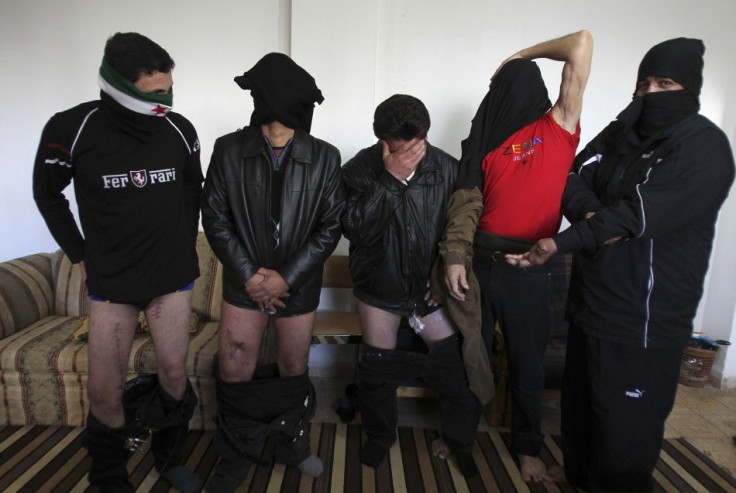Syrian Rebels in a Nightmarish World of Systemic Torture: Amnesty Report

People protesting against the dictatorial regime of Syrian President Bashar al-Assad have been thrust into a nightmarish world of systemic torture, a new report by Amnesty International said Thursday.
The report, coinciding with the first anniversary of the start of the bloody Syrian revolution, said the scale of torture and other ill-treatment in Syria had risen to a level not witnessed for years and was reminiscent of the dark era of the 1970s and 1980s.
The document, titled I Wanted to Die: Syria's Torture Survivors Speak Out, said the torture and ill-treatment of insurgents generally followed a set pattern of dehumanizing treatments.
Beating began on arrest, followed by more severe battery - including with sticks, rifle butts, whips and fists, braided cables - on arrival at detention centers, a practice sometimes called the haflet al-istiqbal or reception. Newly-held detainees were usually stripped to their underpants and were sometimes left for up to 24 hours outside, the victims said.
According to the testimonies given to Amnesty, the detainees are at most risk when being interrogated.
Several survivors told of their experience of the dulab (tire), where the victim is forced into a vehicle tire - often hoisted up - and beaten, including sometimes with cables or sticks.
The insurgents also reported an increased use of shabeh - where the victim is suspended, from a raised hook, handle or door frame, or by a manacled wrists, so that the feet hang just above the ground. The individual is then often beaten.
Electric shock torture appears to be widely used in interrogations. Former detainees described three methods: dousing the victim or cell floor with water, then electro-shocking the victim through the water; the electric chair, where electrodes are connected to parts of the body, and the use of electric prods.
Gender-based violence and sexual crimes against men and women have become more common ever since the revolution began last year, the report says.
A victim identified as Tareq told Amnesty International that during his interrogation at the Military Intelligence Branch in Kafr Sousseh, Damascus, in July last year, he was forced to watch the rape of another prisoner called Khalid.
They pulled down his trousers. He had an injury on his upper left leg. Then the official raped him up against the wall. Khalid just cried during it, beating his head on the wall.
The organization has repeatedly called for the situation in Syria to be referred to the Prosecutor of the International Criminal Court (ICC) but political factors have so far prevented this from happening, with Russia and China twice blocking weakened UN Security Council draft resolutions that made no reference to the ICC.
The experience for the many people caught up in the massive wave of arrests over the last year is now very similar to that of detainees under former President Hafez al-Assad - a nightmarish world of systemic torture, said Ann Harrison, Amnesty Middle East and North Africa expert.
The testimonies we have heard give disturbing insights into a system of detention and interrogation which, a year after protests began, appears intended primarily to degrade, humiliate and terrify its victims into silence.
© Copyright IBTimes 2024. All rights reserved.












